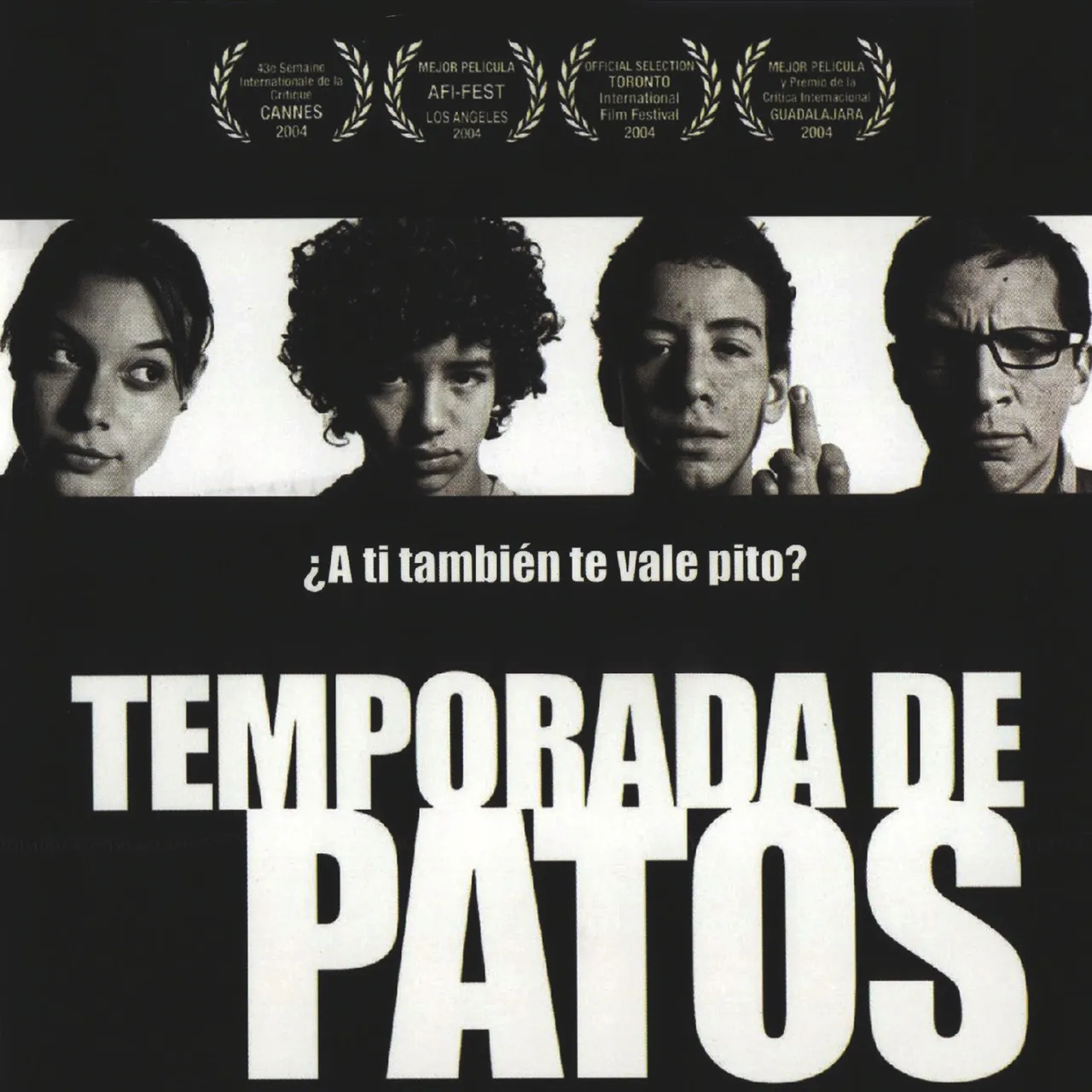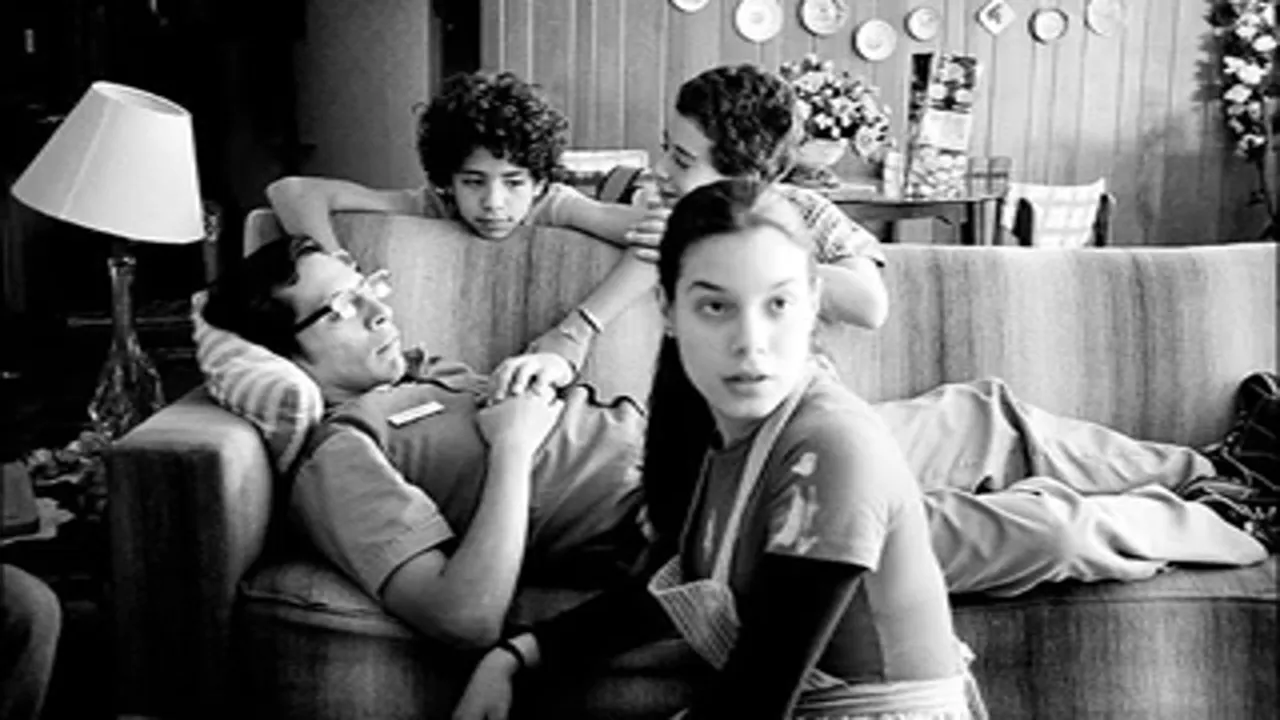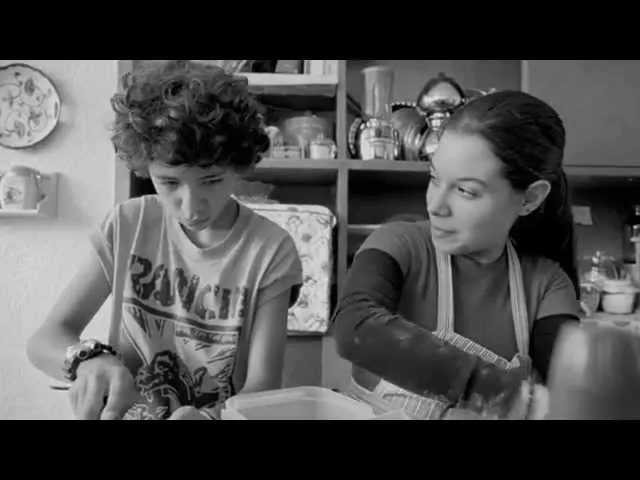Although Mexican cinema is not one of my favorites, today I wanted to do a little review or commentary on a film that caught my attention during the audiovisual analysis classes at my studio and that deserves a small section on my blog.
This is why I ask you to step into this space and start with:
Feeling the cinema
Duck Season
Technical data:
| Title | Duck season |
|---|---|
| Year: | 2004 |
| Length: | 85 min. |
| Country: | México |
| Direction: | Fernando Eimbcke |
| Script: | Fernando Eimbcke, Paula Markovitch |
| Musia: | Alejandro Rosso, Liquits |
| Photography: | Alexis Zabé |
| Cast: | Enrique Arreola, Diego Cataño, Daniel Miranda, Danny Perea, Carolina Politi |
| Production: | Esperanto Films |
| Category: | Dramatic comedy. |
Of Mexican origin, premiered just 14 years ago (2004), directed by Fernando Eimbcke and developed as a genre film "Comedia Dramática", with a fairly understandable script written by Paula Macovich under the supervision of the director.

This film tells the story of the daily life of a couple of young people who, after having the perfect plan to enjoy their free time without the accompaniment of their parents, spend a recreational afternoon at home, to have to endure and live with other people within it motivated to cut the electricity of their population.
Mario, known as Flama, is the son of the owner of the apartment where most of the feature film takes place. His life at that moment is going through a very difficult stage when he has to decide which of his parents should remain motivated to divorce them. For his part, Juan Pablo or Moko, as his friend calls him, is the typical non-breeding brother that most young people usually have and who has also decided to make the most of the moments with his friend knowing that at any moment he could leave for a new home.

Eimbcke in this aspect is based a lot on the typical situation present in most Mexican families at the time, where a bad situation or coexistence ended up causing the separation of the marriage and in such a point affect the development of the entire family and social environment of the adolescent, an aspect that has been seen as a kind of "constant" in a large population of Latino families.
During the development of the feature film, a new character, Rita, appears. A young girl who decides to visit Mario with the need to bake a cake in his oven. It reveals during the plot the need to share with someone when they realized that their family members had forgotten their birthday, bringing with them that need for affection that they could not find on such a special day.
Ulysses joins the plot, a pizza delivery guy who, after arriving late in his delivery, ends up arguing with Mario and Juan Pablo about whether or not the pizza should go free due to company policies regarding the time required for a pizza to reach its destination. Failing to reach an agreement, he ends up staying in the apartment waiting for payment and sharing with the other three people who lie there.
Mario and Juan Pablo finish with their plans turned pieces and try to spend a pleasant afternoon even if they have two unexpected guests in the apartment, however, a third factor affects their day, the power cut, which forces them to intermingle with their guests and develop a close communicational and expressive relationship between them.
Eimbcke in this aspect perhaps makes the search for personal treatment with others, this motivated to find ourselves trapped in different occupations and we have forgotten or set aside how to make relationships in a collective way and not lock ourselves in our individual world.
During their speech, the characters end up expressing their different desires, problems, dreams and other factors that had been reserved by fears, but little by little each one is understood and they end up understanding the problems of home who and move on to develop a good friendship.

This film was also a very difficult work for Eimbcke himself, who even though he had a great script with a great message, the protagonists were children and one could notice in certain aspects the lack of experience and the ease of developing certain scenes. In addition, Eimbcke works a lot with the liberating and communicational side throughout the film, which, despite being an excellent message, does not completely satisfy the audience's need, making the film a little boring and less important to the viewer.
At first, perhaps, it is not made to be understood because it owes its name to this film, however, by observing the evolution of the characters during the story and by the fact that the picture is more present on the wall. We can give a significant meaning to "Duck Season" where, just as the flocks of this species support each other in order to take flight to a new place in the face of the threats that threaten them, these young people need mutual support in order to grow, to be able to reach a new horizon and smile in the face of adversity and thus avoid being hunted by life.
Personally, I find the film quite interesting, with a lot to comment on from a psychosocial point of view, but despite its slow development and the need to run after the first 40 minutes without so many ups and downs in tension, I can say that "Temporada de Patos" deserves to be a film to have in your film gallery. Personally, I'd give you a 7.5/10.
If you want to watch the movie it is available on youtube:
